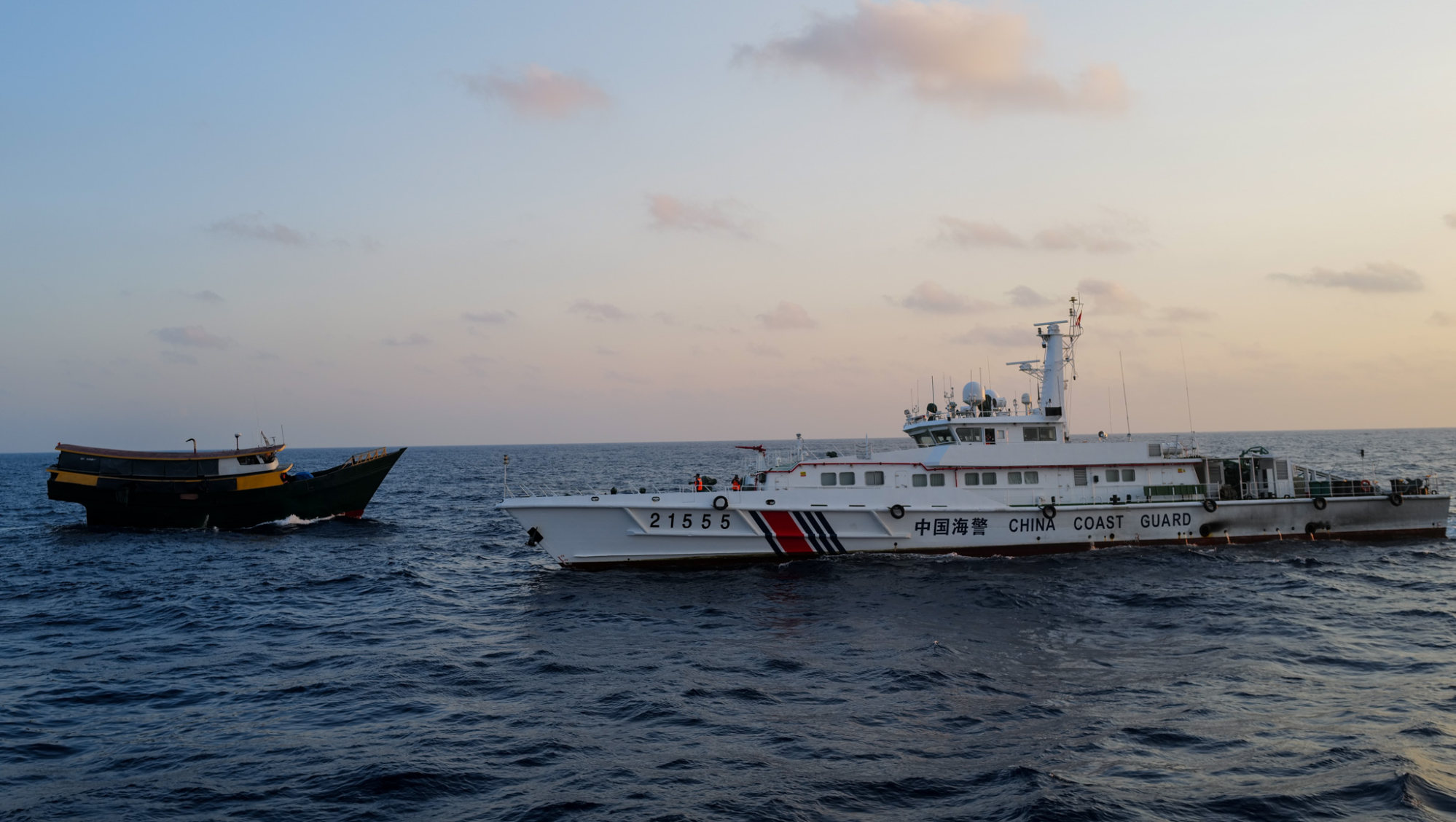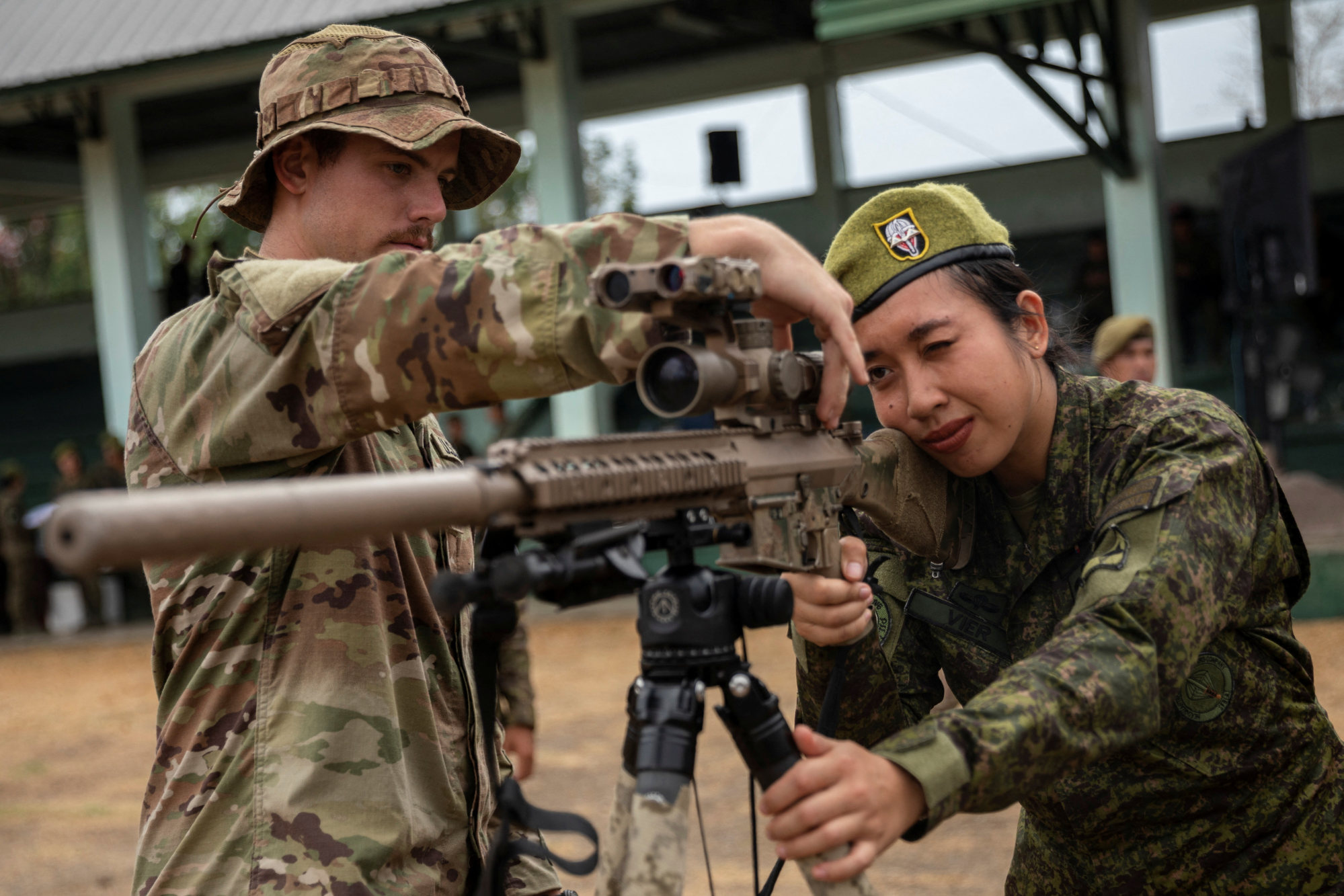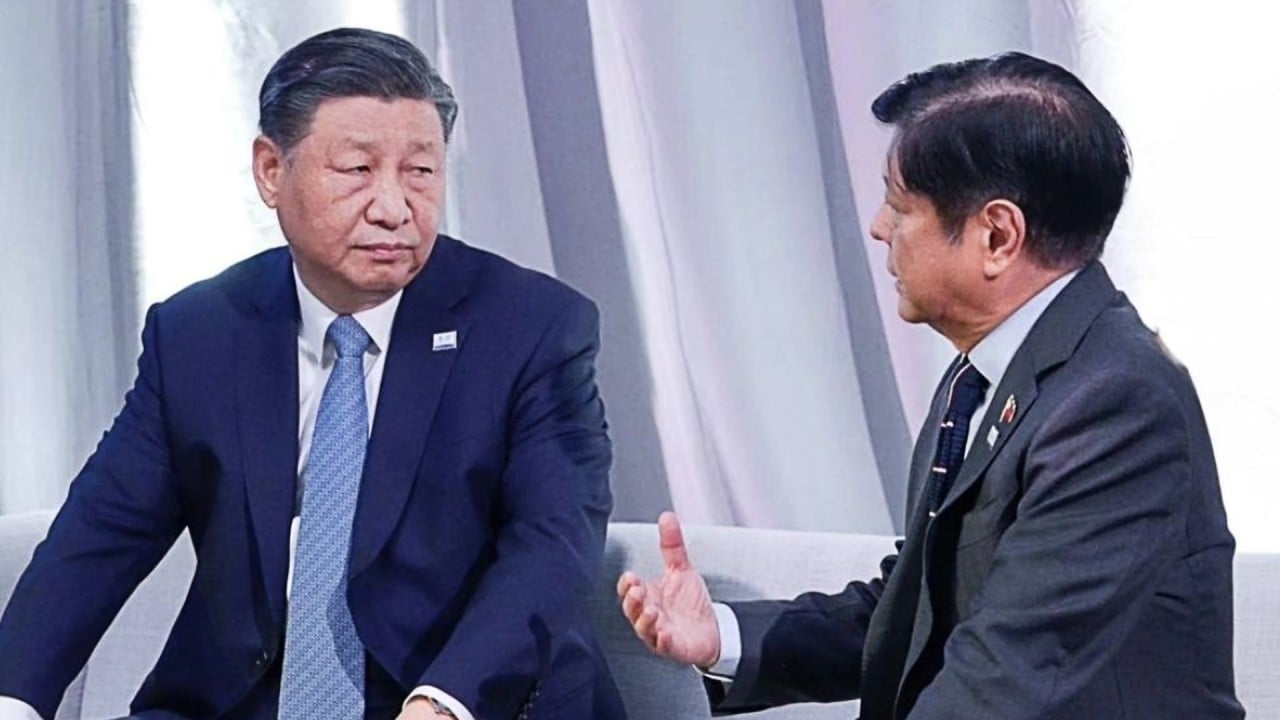Following a request from senators to abort the programme – which was raised after a lawmaker noted “with alarm” that some military officers up for promotion had studied in China – the armed forces’ Chief of Staff Romeo Brawner Jnr said in August the military was no longer sending officers to China.
He also said the point of the programme was to learn best practices from other countries’ militaries to see what could be applied to theirs.
Carlos is on leave from his post as chief of the navy’s Western Command, which guards Palawan and the country’s maritime interests in the West Philippine Sea – Manila’s term for the section of the South China Sea that defines its maritime territory and includes its exclusive economic zone.
Carlos is the most senior Philippine military officer to have once studied in China. In 2008, he took a general staff course at People’s Liberation Army (Navy) Command College in Nanjing.

An alleged audio transcript leaked to select reporters by the embassy claimed that Carlos had confirmed to the embassy that his superiors had approved the new model, which would only allow Manila to deploy one coastguard vessel and a resupply boat to its outpost on the shoal and, in response, China could launch one coastguard ship and a fishing boat.
The accusations have since been strongly denied by a number of Philippine officials and agencies, with some alleging that the embassy’s evidence had been fabricated.
Aaron Jed Rabena, a professorial lecturer at the University of the Philippines Asian Centre who specialises in strategic studies and geopolitics, told This Week in Asia that the disclosure of a wiretapped conversation without the consent of the person being tapped was “a violation of the Vienna Convention and [the Philippines’] anti-wire tapping law” and could prove problematic for the embassy.
Rabena, who has a doctorate in international relations from Shandong University, cautioned that this could have “economic repercussions or a tit-for-tat expulsion of some of our diplomats”. He also said it could destroy any goodwill China had nurtured with other Filipino alumni of its military schools.
“That’s possible, others might be worried that they are being recorded, including our diplomats and other government agents or agencies that deal with the West Philippine Sea issue,” he said.

Chester Cabalza, founding president of the International Development and Security Cooperation think tank in Manila, said the accusations against Carlos could have a chilling effect on fellow alumni of the military exchange programme with China.
Cabalza, who studied at the National Defence University in Beijing, asked how any of them could trust China if they could be “used by them” in the same way they had used Carlos.
He recalled that Beijing was “very aggressive” two years ago in consolidating the Philippine military officers who had studied in China into an alumni association.
The military officer who was interviewed said there was no protocol in the armed forces about sharing such materials with former foreign classmates.
Military officers should be wary of such approaches, warned retired Rear Admiral Rommel Jude Ong during a closed-door forum sponsored by the Stratbase ADR Institute think tank in Manila in January of last year.
Ong said the “co-opting” of key defence officials to “establish a secure foothold in the Philippines, at the expense of the country’s maritime interests” was part of China’s “political warfare”.
China had also taken a softer approach, such as hosting “alumni events” for officers who had once studied in the country, he said.
Ong on Tuesday confirmed to This Week in Asia what he had earlier told the forum, adding that the Chinese embassy’s recent actions showed it was not just a diplomatic mission but was also used to “influence the decisions of military leadership and to use local media to convey disinformation”.
“Taken together with the current trajectory of domestic politics – the intention is to distract the country and government away from the [West Philippine Sea] issue, create discord and distrust among Filipinos, and weaken the institutions involved in fighting for our sovereign rights in [the area],” he said.
Rabena the lecturer said Manila’s military exchanges with Beijing were “a bit different” because the countries’ maritime disputes “cast malice into things related to or done by China”.
Still, he expressed hope that military-to-military ties might resume “when tensions lessen”, noting that Brawner had said the exchange programme was only temporarily halted.


